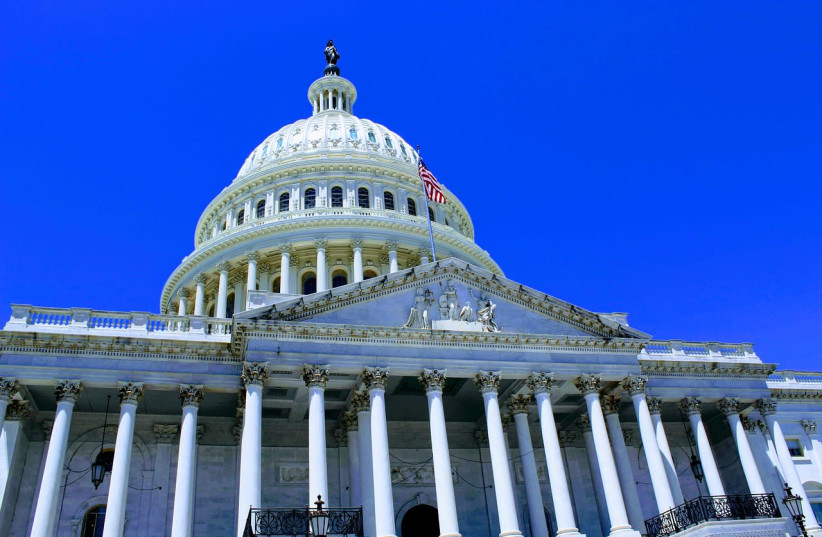The attempt by progressive members in the US House of Representatives to block the special Iron Dome aid package for Israel was of minor short-term significance, but it illustrated how two seemingly stunning Israeli success stories have turned into colossal failures: The Six Day War victory, which resulted in the West Bank settlement enterprise, and the unrivaled impact of the pro-Israel lobby in Congress. The power trip in both cases resulted in strategic blindness that is now being expressed in gradually increasing challenges to the automatic Congressional support of Israel.
The IDF’s impressive 1967 victory following a period of existential anxiety in the months leading up to the war generated record high enthusiasm for Israel on the part of American Jews and Americans in general, enthralled by David vanquishing Goliath. But the seeds of the gradual reversal in the views of many Democratic voters and young American Jews about Israel were planted in the years following that victory. It was not only the result of the natural tendency by progressives to back the underdog; it also stemmed from the moral and strategic implications of the prolonged occupation and of the arrogance of the settlement movement that took control of Israeli politics.
Israelis, of course, are shocked when an American lawmaker refuses to approve funding for a life-saving defense system. We are also stunned that anyone can criticize Israel when it struggles with a terror organization such as Hamas. But it is important to understand that as we are blind to the nuances of American politics and view the Iron Dome incident in Congress as stemming from anti-Israel sentiment when, in fact, it reflects power struggles within the Democratic Party on domestic priorities. By the same token, most progressives do not realize the nuanced differences between Hamas and the population of Gaza and between Iron Dome and offensive weapons. All they see is Israeli unwillingness to end its ongoing occupation of another people while the US taxpayer is required to foot the bill and deal with the consequences.

The decades-long success of “Israel supporters” in Congress is also turning into a flop in front of our very eyes. Initially, this support was a sacred goal of Jewish organizations to make up for US inaction during the Holocaust and mobilize help for a young state surrounded by enemies. But the stronger these groups grew, the more aggressive and arrogant they became in order to silence any hint of criticism and deviation from the automatic support for the policies of the governments of Israel. This worked well as long as Israeli governments attempted to end the occupation and as long as bipartisan policy kept support for Israel within the domestic political consensus. However, these organizations gradually lost touch with the liberal/progressive majority of the Jewish community and with many Democratic voters. Above all, they lost touch with the young generation of liberal Jews whose scale of values shapes views far different than those of their parents.
Population trends unrelated to Israel, such as the rise in the political power of immigrants and the politics of identity, also affected support for Israel, which these increasingly influential groups viewed as part of the privileged establishment they opposed. The trends shaping the younger generation of American Jewish society have also undergone deep change – the Holocaust and miracle of Israel’s founding are no longer the profound experiences they were for their parents. These young people expect Israel to live up to standards that reflect their values. They demand of it more than they demand of non-democratic states, and some expect it to conduct itself as befits the nation-state of the Jewish people, i.e. the one in which they have a strong stake.
But our reactions to phenomena that had nothing to do with Israel have also been detrimental. We could have conducted a true discourse with our critics, but in our utmost arrogance we opted to dub them antisemites and undermined their advancement in American politics.
We keep trying to advance legislation that prevents their right to a nonviolent expression of their views, violating the value of free speech that American liberals hold sacrosanct.
Thus, given that the aggressive tactics long favored by “Israel supporters” are no longer effective, we would do well to quickly recalibrate our course.
The new government is trying to rehabilitate the bipartisan approach and ties with liberal American Jewry, and this is a commendable effort, necessary but insufficient. Barring a sincere Israeli effort to end the occupation, and as long as the governments of Israel continue to regard progressive criticism as illegitimate, the phenomena we are witnessing today by a small number of lawmakers will only spread and become the bon ton of the future generation of liberal leaders.
The writer is the Israel director of J Street and a board member of the Mitvim Institute for Regional Policies. He served for many years as a diplomat in the US and foreign policy adviser to president Shimon Peres.
